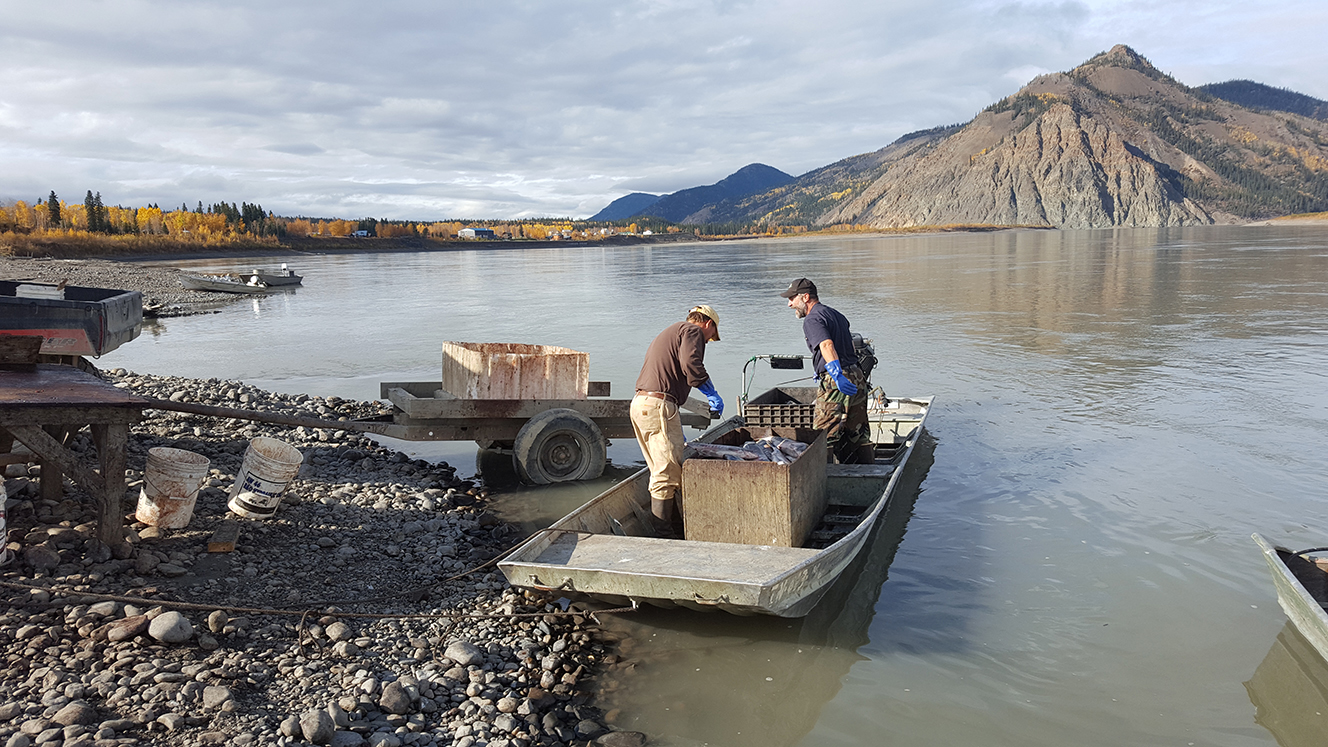Team up with faculty on groundbreaking anthropological research.
The Department of Anthropology was founded in 1935 as part of the College of Arts and Sciences at the University of Alaska. The first undergraduate degrees in Anthropology were given in 1959, the first MA degrees in 1968 and the first PhD degrees in 1988. We are the only anthropology program in the United States that maintains a holistic approach to circumpolar studies, providing instruction and research in all aspects of anthropology.

The Weight of Water: Melina Arciniega's Research on Fairbanks' Self-Haulers
February 16, 2026
Anthropology MA student Melina Arciniega studies water insecurity and the lived experiences of Fairbanks self-haulers.

"The time is now": UAF anthropology PhD student honored with Governor's Arts & Humanities Award
December 06, 2025
UAF anthropology PhD student MoHagani Magnetek earns one of Alaska's top humanities honors, celebrating community-driven impact.

October 20, 2025
Mentorship and discovery meet as a UAF student and professor unearth WWII history and reshape Arctic archaeology.
Department of Anthropology Contact Information
Email: uaf-anthropology@alaska.edu
Phone: 907-474-7009
Physical address:
1790 Tanana Loop
Bunnell Building, Room 405A
Fairbanks, AK 99775
Mailing address:
UAF Department of Anthropology
PO Box 757720
Fairbanks, AK 99775
Patrick Plattet, PhD
Professor of Anthropology
Office: Bunnell Building, Room 307D
Phone: 907-474-6608
Email: pplattet@alaska.edu
Sveta Yamin-Pasternak, PhD
Assistant Professor of Anthropology
Office: Bunnell Building, Room 305B
Phone: 907-474-6188
Email: syamin@alaska.edu
Please contact Dr. Sveta Yamin-Pasternak, the UAF Anthropology Graduate Program Coordinator with all queries about our MA and PhD studies.
At times, navigating your way through college can be tricky. Throughout your academic
journey, you’ll need guidance from different advisors to stay on the path to success.
Visit our advising page to ensure you're reaching out to the right advisor at each stage of your journey.
Here is a brief outline of some of the different types of advising available to you.
UAF Academic Advising Center (First-Year Students: 0–24 credits)
Designed for first-year students, this service helps you lay a strong academic foundation,
equipping you with the resources and guidance needed to succeed in your degree program.
CLA Undergraduate Comprehensive Advising (Students with more than 24 credits)
Once you’ve completed 24 credits, you’ll work with one of our CLA undergraduate advisors
for help with registration, petitions, major changes, and navigating college-related
questions.
CLA Undergraduate Department/Program Advising (Declared Majors/Minors)
In addition to your CLA undergraduate comprehensive advising, once you’ve declared
a major or minor, faculty advisors within your department supplement specialized guidance,
helping with upper-division-level course selection within the major, internships,
practicums, and capstone projects.
CLA Graduate Advising
Graduate students do not meet with CLA Undergraduate Comprehensive Advisors. Graduate
students will appoint an advisory committee. The graduate advisory committee guides
the student in developing and completing their degree program. CLA has designated
department graduate coordinators who will guide you through this process.
Non-Degree Seeking Students
Advising is also available for students who are not pursuing a degree but just want
to take a class and want help with course selection and academic planning. This happens
through UAF Admissions.
Please visit our advising page for more information and contact details.












